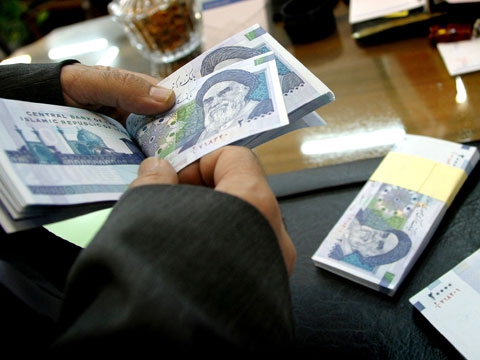Monday 15 October 2012 - 14:26
Story Code : 7763
No panic in Iran despite currency collapse, international sanctions
Iran�s currency virtually collapsed last week, and the public protests that followed in Tehran stirred memories of the massive anti-regime protests of 2009. This has caused excited speculation in the United States and its allies about the imminent fall of President Mahmoud Ahmadinejad, the abandonment of Iran�s uranium enrichment program, or even the end of the whole Islamic regime. Don�t hold your breath.
Ahmadinejad blamed the currency crisis on the foreign sanctions that are crippling Iran�s trade, of course. His critics at home just blamed him: �The smaller part of the problem relates to sanctions while 80 per cent of the problem is rooted in the government's mistaken policies,� said Ali Larijani, the speaker of the Iranian parliament. But he would say that, wouldn�t he?
It�s true that Ahmadinejad has used the country�s large oil revenues to paper over some serious mistakes in running Iran�s economy, but the current crisis was caused by a steep fall in those revenues, which is directly due to the sanctions.
Four rounds of United Nations-backed trade sanctions, ostensibly meant to stop Iran from developing nuclear weapons, had already cut the country�s oil exports from 2.5 million barrels a day to 1.5 million barrels by early this year.
Then came new American sanctions that blocked any international bank doing business in Iran from access to the immense U.S. market � so most of them ended their dealings with Iran.
In July came new European Union sanctions banning oil imports from Iran entirely. Since Europe was taking one-fifth of Iran�s remaining oil exports, that blow was enough to send the Iranian rial into free fall.
Until 2009, the rate of exchange was fairly stable at about 10,000 rials to the dollar. Then it started to fall slowly, and then faster � and in a hectic few days last week, it tumbled a further 40 per cent to a low of 35,000 rials to the dollar. That was when the protests began in Tehran�s Grand Bazaar, whose merchants were among the strongest supporters of the revolution in 1979.
The protests were contained without any deaths, and the shops in the bazaar are now open again. The rial has recovered slightly, stabilizing at around 28,000 to the dollar. But that is one-third of what it was worth three years ago, and the effects are being felt in almost every household in the country. Formerly comfortable middle-class families are scrambling to put food on the table, and the poor are really suffering.
So the sanctions are working, in the sense that they are hurting people. But what are they accomplishing in terms of their stated purpose of forcing Iran to abandon its nuclear weapons program? More importantly, perhaps, what are they achieving in terms of their unstated purpose: triggering an uprising that overthrows the whole Islamic regime?
First of all, Iran doesn�t have a nuclear weapons program. The International Atomic Energy Agency and the U.S. and Israeli intelligence service are all agreed on that.
A �threshold nuclear weapons capability� (but no nuclear weapons) is still not illegal. Other countries with enrichment facilities include Argentina, Brazil, Germany, Japan, and the Netherlands. Moreover, Iran�s stock of reactor-grade enriched uranium is under permanent IAEA supervision, and alarms would go off instantly if it started to upgrade that stock to weapons grade.
Israel�s current government has talked itself into a state of existential panic over Iran�s uranium enrichment program, but the U.S. government certainly doesn�t believe that Iran has any immediate plans to build nuclear weapons. So what are these sanctions really about?
Overthrowing the Iranian regime, of course. American sanctions against Iran long predate any concerns about Iranian nuclear weapons, and would not be ended even if Iran stopped all work on uranium enrichment tomorrow. The U.S. legislation that imposes the sanctions makes that very clear.
Since stopping the enrichment program would not end the sanctions, why would the Iranian government even consider doing so? And will the Iranian people rise up and overthrow the regime because sanctions are making their daily lives very difficult? Even anti-regime Iranians are proud and patriotic people, and the likelihood that they will yield to foreign pressures in that way is approximately zero.
The Iran Project is not responsible for the content of quoted articles.
# Tags











